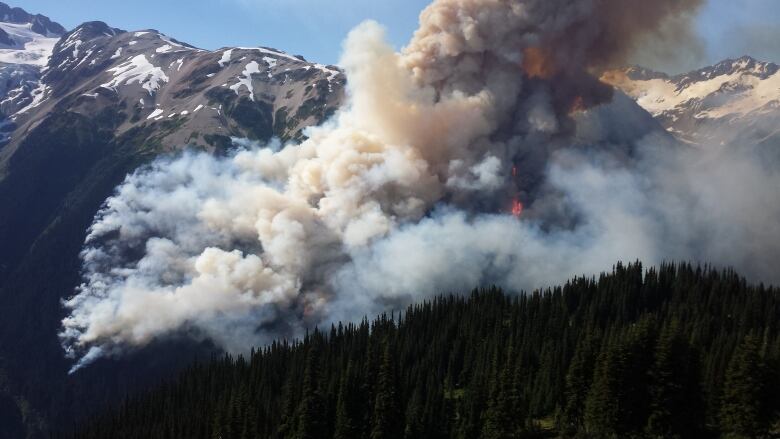B.C. fires exacerbated by climate change, expert says
Expert blames climate change, the Pacific Decadal Oscillation and El Nio for early wildfire season

The hazy, apocalyptic sky above much of the south coast of British Columbia may not necessarily be the new normal.
While it maybe more commonplace 30 to 50 years from now, this year's intense wildfires and smoky skies is acombinationof climate change and other weatherfactors, according toJohn Innes, the dean of UBC'sfaculty of forestry.
"They've all come together in what some people may call a perfect storm," Innes told On the Coast's Stephen Quinn.
Roughly 200 wildfires are burning across B.C. in a season that has come earlier than usual. The furious blazes and smokehaveprompted a province-wide ban on campfires, evacuations, and air quality advisories.
Innes say two weather trendsthe Pacific Decadal Oscillation and El Niohappened to coincide this year to cause a hotter, drier summer. Climate change then further exacerbates the situation, causing an extraordinary wildfire forest season in B.C.
Though most wildfires are either caused by humans or lightning, Innes says the spread of fires depends on how warm or dry an area isand those conditions appear to be affected by climate change.
"Longer term,we will see more fires. We will see the fire season extending, it will start earlier, it will go on later, and the fires that we get will be more intense," he said.
Though adapting to climate change is difficult, B.C. is already taking measures, such as planting more resilient species of trees in areas devastated by the mountain pine beetle, Innes said.
"We have to try and make sure that our forests are as resilient as possible," hesaid.
"In other words, we ought to make sure we have a variety of trees, variety of species, variety of genetic stock to enable as many as possible to survive given the increased variability that we're expecting."
Listen to the full interview: How climate change is changing B.C. forests.












_(720p).jpg)


 OFFICIAL HD MUSIC VIDEO.jpg)
.jpg)



























































































